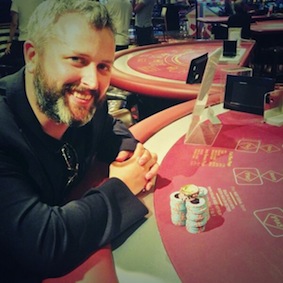The last blog I wrote was about how gaming operators should socialise their existing products. This provoked a maelstrom of feedback.

The main feedback was comments on the differences between social games and gambling products. This is important as these user groups are distinctly different and the products that appeal to these groups should be designed differently.
However, I would clarify this and call operators that make games for these groups social virtual currency (SVC) and non-social real money gaming (RMG). For the first time companies need to consider mixing the real currency and social concepts together.
A newly emerging battleground is the mix of real money and social concepts - highlighted in my previous blog. To clarify, this is not the upsell of real money to virtual currency social users. This is about the socialisation of real money concepts. Therefore the terminology needs to evolve to cover the new Social Real Money Gaming category (SRM?).
This battle has become mainstream for the first time as the social networks allow their platforms to be integrated with real money operators.
RMG operators are already breaking ground, however, in socialising their brands even if not yet their products. Social networking channels are used to converse with the customers on a brand and marketing level, and even to talk about their product, but the products themselves are not socially integrated. Paddy Power's "We hear you" is most notable and particularly aligned with this.
Social Real Money presents a challenge to RMG operators, however. Real money brands on social channels currently are tailored to fit the demographic of the RMG brand. Social networks, however, provide a much bigger mass market appeal and therefore the successful mass market games will be the ones with broader brand appeal. It is worth noting at this point that a successful business does not have to be mass market, but to be judged in terms of the top social games it will.
For example, social sports betting generally works on large scale of users drawn from a wide range of territories - each with their own favoured betting schedule of sports/events and different methods of betting, etc. Therefore, there is a greater need for the operator to truly personalise the experience to be fully inclusive of this mass market gaming base to really capitalise the social market. Not something that occurs on the real money gaming demographic currently.
Real money’s migration into social also needs to learn from the existing social mechanisms. The constant reward mechanisms found in social games can also have a much greater impact in RMG than the "basic" rewards schemes in RMG products.
The social network platforms are also shifting to mobile but for once this aligns perfectly with how gaming, and sports betting in particular, has already gone.
So not only do gaming companies have to think about socialising their core products, but they have to consider socialising their entire brands alongside. Maybe we are about to see a wave of spun-off social brands containing products with a more social feel?

